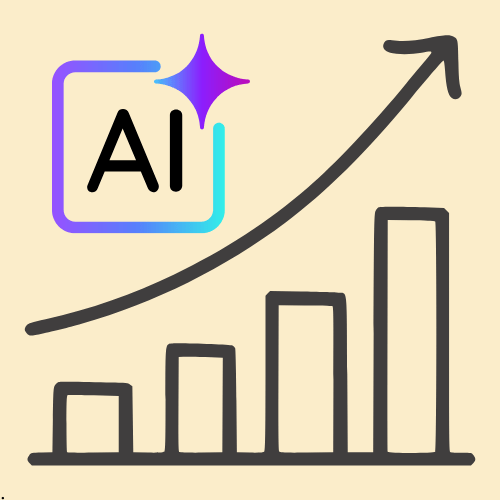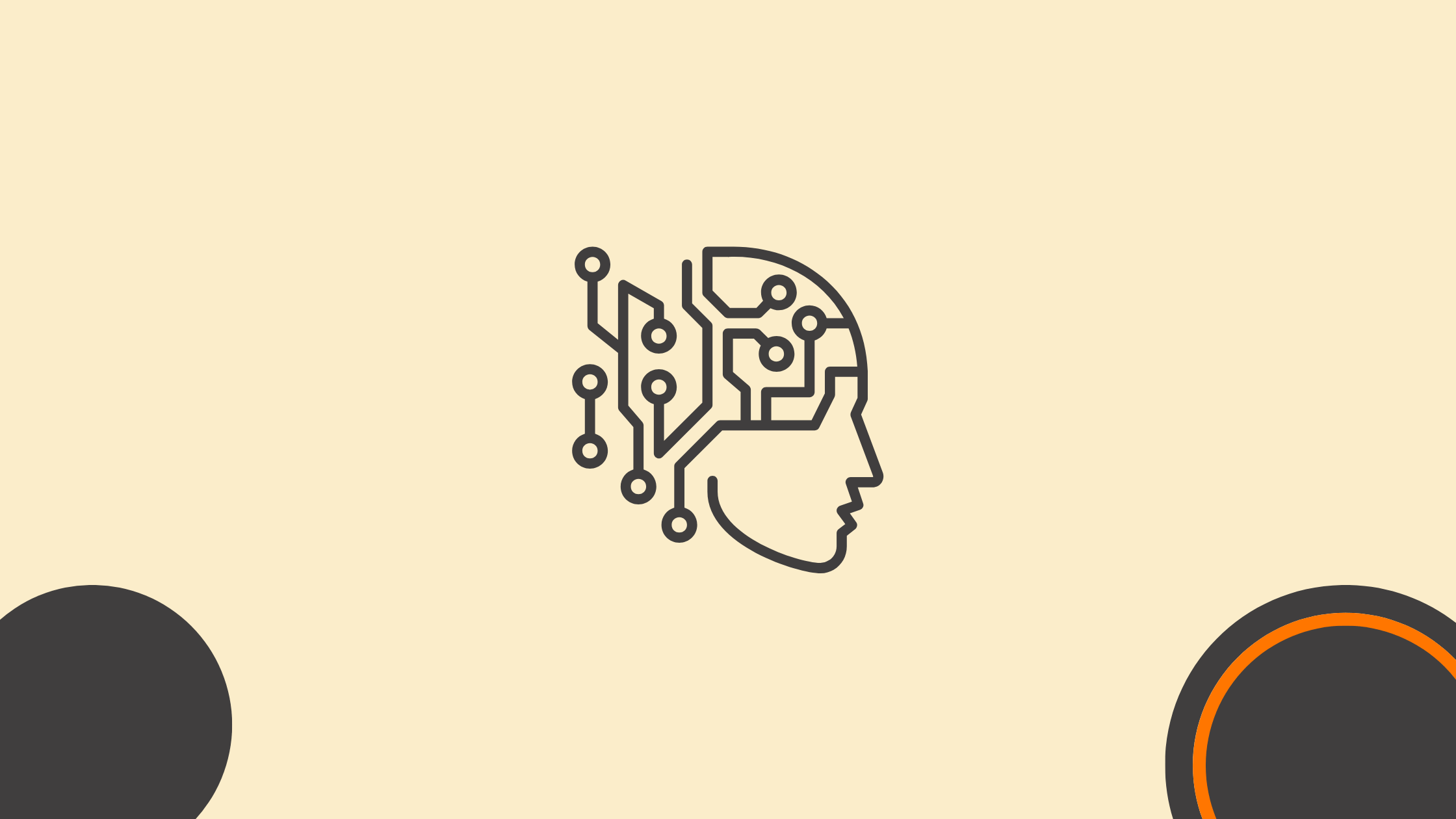5 AI Trends Shaping Innovation and Increasing ROI in 2025

Over the last few years, Artificial Intelligence (AI) has shifted beyond experimental application to becoming the foundation of business strategy. The fact that the pace of AI integration is gaining momentum is not the only thing by 2025 but the transformation that is occurring, wherein it is altering the manner in which companies are developing, performing, and earning.
Whether it’s marketing automation or smart product development, AI is no longer a novelty but a necessity for those seeking to stay competitive and generate revenue.
Chapters
- What is Artificial Intelligence?
- Significance of knowledge about the newest AI Trends
- 1. Hyper-Personalization experiences by AI
- 2. Generative AI Redefining Product Design and Content-Generation
- 3. Enterprise-Wide AI-Assisted Decision Making
- 4. Business AI Agents Model
- 5. Sustainable and Responsible Innovation AI
- Conclusion
What is Artificial Intelligence?

Artificial Intelligence (AI) can be described as the two possibilities of making machines that can think, learn and make decisions by imitating human intelligence. It allows computers and systems to solve problems, communicate in languages, recognize patterns and make decisions that otherwise need human intelligence. Computer vision, natural language processing and machine learning are some of the subfields of AI.Its applications can be highly observed in features like virtual assistant, recommendation system, robot and autonomous vehicles, among other aspects in industries to enhance efficiency, accuracy as well as user experiences.
Significance of knowledge about the newest AI Trends
The evolution of the latest trends in AI is vital nowadays in being competitive in the current digital environment that is quickly changing. These patterns show the way in which the AI is revolutionising industries, increasing efficiency and stimulating innovation. Professionals and businesses will be able to make decisions, employ crop related technologies, and increase ROI, by staying abreast with the innovations in the field, such as generative AI, ethical AI, and automation. Moreover, the risk factors, the preservation of ethical direction, and availability of new avenues of growth will also be lessened by the adherence to the changes that will be a significant aspect of the future-oriented strategies.
To succeed in this AI-first economy, both professionals and businesses are flocking to AI courses to equip themselves with the tools that will allow them to take advantage of machine learning, natural language processing and predictive analytics. It is equally important to know the wider AI trends.
In this blog, we’ll explore five key AI trends that are redefining innovation and unlocking ROI across industries in 2025.
1. Hyper-Personalization experiences by AI

Customer expectation has never been as high and AI is responding to the expectations. Hyper-personalization refers to the aspect of tailoring products, services and communications down to the individual level using real-time and using AI algorithms.
By 2025, firms will be reaching beyond rudimentary demographics, to draw on behavioral, contextual, and emotional data. Generative AI and machine learning models are examining activity on the site (browsing history, purchase history, etc.), as well as sentiment of customer communications and are being used to offer ultra-relevant products, offers, and content.
ROI Impact:
Hyper-personalization improves customer engagement, decreases customer churn and raises the average order value. These AI-enabled strategies are resulting in large revenue increases per user by retailers, streaming services and even B-to-B businesses.
Example:
E-commerce sites are currently utilizing AI chatbots that are able to not only answer questions, but to also advise the customer on the products available based on tone, urgency and interest, just as a human agent would, but on a large scale.
2. Generative AI Redefining Product Design and Content-Generation
Generative AI systems such as GPT-4 and DALL·E among others are not mere hype words, they are radically transforming the way things are written and how goods are made. By 2025, firms will have integrated generative AI into their creative processes as they create marketing content, design prototypes, and even code.
The gaming industry, fashion and automotive industries are already utilizing AI to create new ideas, evaluate them quickly in the virtual world, and introduce them to the consumer, quicker than ever.
ROI Impact:
Automating the process of creating digital assets and expediting time-to-market, businesses also save considerably on the operating costs but, at the same time, boost the quality of their production and improve the pace of innovation.
Example:
With a consumer electronics firm, it can now take only a few minutes to generate dozens of different variations of a 3D design of a new product and this enables faster A/B testing and shorter development time.
3. Enterprise-Wide AI-Assisted Decision Making
AI has ceased to be just a prerogative of the data science teams. By 2025, AI-based decision tools can enable managers, marketers, HR professionals, and finance executives to make faster and smarter decisions supported by real-time granular insights.
Such tools are employing the use of predictive analytics, natural language processing, and real-time dashboard to anticipate trends, bottle necks and simulate scenarios to manage risk more effectively.
ROI Impact:
Decision-making with AI support minimizes uncertainty, helps insure business operations, lets move ahead of business strategy that results in quantifiable cost savings and improvement in revenue.
Example:
Supply chain manager is now able to infer the change of demands in weather, news and consumer opinion using AI that minimizes wasted inventories and enhances customer satisfaction.
4. Business AI Agents Model
The year 2025 will see autonomous AI software agents that are based on LLMs (Large Language Models) and reinforcement learning being introduced to real world workflows. Such agents are able to manage multistep routines including administering CRM systems, creation of reports, staff induction, or compliance monitoring in large databases.
Compared to simple chatbots, such agents have little to no human interaction and can learn on the fly by using constant feedback loops.
ROI Impact:
Since AI agents will eliminate the financial implication of doing repetitive manual work, cost reduction and the ability to use human employees in more strategic endeavors come into the picture. They also reduce inaccuracy and operational variance.
Example:
An AI agent used by a financial company may track market fluctuations and compose investment reports, as well as inform each client about the personalized information, decreasing the pressure on analysts and contributing to the higher quality of provided services.
5. Sustainable and Responsible Innovation AI
As environmental, social, and governance (ESG) issues are increasingly at the core of corporate strategies, artificial intelligence (AI) is gaining a strong position as an tool that can help in the construction of sustainable operations. In 2025, AI is helping organizations to monitor carbon emissions, energy optimization and ethical sourcing on supply chains.
Simultaneously, responsible AI is on the rise i.e. companies are investing in transparent, explainable models and frameworks of AI to reduce bias, achieve compliance and gain consumer trust.
ROI Impact:
Not only it is effective in cutting environmental costs but it also helps improve brand reputation, appeal to ESG-oriented investors, and creates access to a new market. Long-term business value can be achieved through a reduced legal and reputational risk due to responsible AI.
Example:
An AI logistics company has a lower carbon footprint and saves money since it achieves real-time optimizations of delivery routes that minimize the fuel used in those operations.
Conclusion
These AI trends that mark 2025 are not mere technological improvements, it is a new philosophy of thinking, constructing and expanding. It is clear that AI is the backbone of almost all the aspects of innovation and value-based development, whether in hyper-personalized experiences or autonomous agents.
As long as companies continue to invest in intelligent automation and decision-making capabilities, it is unlikely that demand for professionals skilled in comprehending, implementing, and expanding AI technologies will decrease. Here Artificial Intelligence Courses comes in as a very crucial role. Be it a manager, developer or a strategist: Structured learning can enable you to keep up relevance and future-proof your job in this AI-driven economy.
Those who can combine creativity with computations are the ones who have a future. Equipped with proper AI education and aware of emerging trends, one cannot only adapt to the age of smart innovation but also lead in it.
Other Interesting Articles
Master the Art of Video Marketing
AI-Powered Tools to Ideate, Optimize, and Amplify!
- Spark Creativity: Unleash the most effective video ideas, scripts, and engaging hooks with our AI Generators.
- Optimize Instantly: Elevate your YouTube presence by optimizing video Titles, Descriptions, and Tags in seconds.
- Amplify Your Reach: Effortlessly craft social media, email, and ad copy to maximize your video’s impact.
The post 5 AI Trends Shaping Innovation and Increasing ROI in 2025 appeared first on StoryLab.ai.


Deixe um comentário